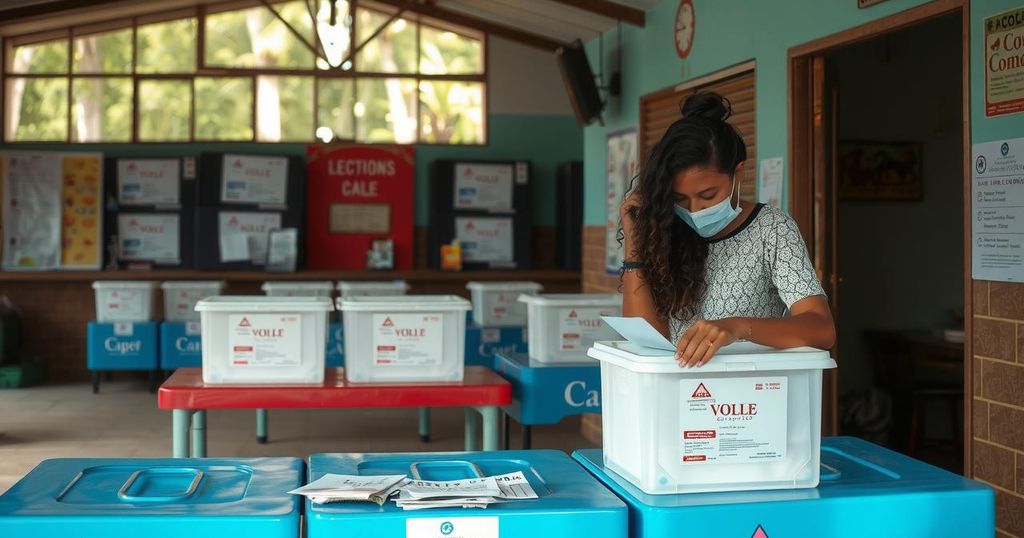Comoros Elections: Voters Cast Ballots Amidst Political Tensions

Voters in Comoros are electing a 33-seat parliament amidst accusations of electoral misconduct following President Azali Assoumani’s controversial re-election. Approximately 338,000 registered citizens are participating, with nearly 100 candidates on the ballot. Opposition parties are divided over whether to participate or boycott the elections as Assoumani faces criticism for authoritarianism and concerns about his son succeeding him.
Voters in the Comoros archipelago have commenced casting their ballots to elect members of the 33-seat parliament, following a controversial election cycle marked by claims of widespread irregularities during President Azali Assoumani’s re-election last year. Approximately 338,000 registered voters are participating in the election, with polling stations opening on Sunday. The nation last held parliamentary elections in January 2020, and nearly 100 candidates have been approved by the Supreme Court to contend in this election.
President Assoumani, who has been in power since a coup in 1999 and has successfully won three elections, faces significant criticism from opposition factions. Detractors accuse him of authoritarian governance and express concerns regarding his intentions to eventually position his son, Nour El-Fath, as his successor by granting him extensive powers to oversee government operations. Some opposition groups, such as the Juwa party, led by the imprisoned former President Ahmed Abdallah Sambi, have urged a boycott of the elections, while others remain committed to participating. Hamidou Karihila, a candidate representing the opposition Hope of the Comoros party, articulated, “The Azali regime is weakened … by participating in these elections we are contributing to further exposing the flaws in its system and accelerating its inevitable fall.”
Results of this electoral process are anticipated by Friday, shaping the future of governance in an archipelago fraught with political strife.
The Comoros archipelago, located in the Indian Ocean, has a tumultuous political history characterized by coups and allegations of electoral malpractice. Under the leadership of President Azali Assoumani, who regained power in 2019 amid claims of irregularities, the political landscape remains contentious. Assoumani’s administration has faced accusations of authoritarianism and nepotism, particularly related to preparations for his son to assume leadership in the future. The electoral system reflects deep divisions among political factions, with many opposition groups advocating for boycotts while others see participation as a means to challenge the current regime.
In conclusion, the parliamentary elections in Comoros are set against a backdrop of political unrest and allegations of misconduct. As voters engage in this pivotal election, the outcomes may significantly influence the direction of governance within the archipelago. The political maneuvering surrounding President Assoumani’s leadership and his son’s potential succession continues to raise concerns among opposition parties and voters alike.
Original Source: www.naroomanewsonline.com.au







